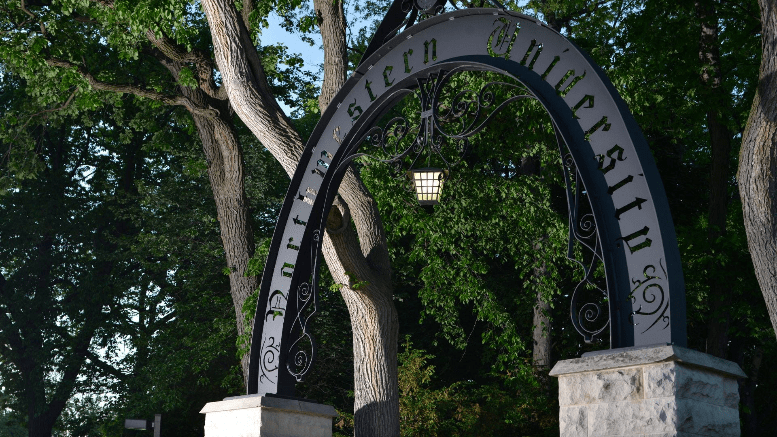New Ian Sanders Chair of History will teach Sanders Seminar starting this fall
As a Northwestern undergraduate, Ian Sanders ’91 relished the intimate seminars he took with history professors like Lacey Baldwin Smith, Peter Hayes, and Karen Halttunen at the Weinberg College of Arts and Sciences. Those memorable experiences sharpened his writing and critical analysis abilities, providing Sanders with treasured, versatile, and applicable skills he continues to leverage in his professional life today.
“Anytime you’re 19 or 20 years old and sitting in a room with a dozen of your peers and a professor at the top of his or her field is a special experience and one that demands your best,” Sanders says. “Those seminars had such a profound impact on me as a young student, fostering individualism and creativity and challenging me to think in new ways.”
Now, Sanders is unlocking that same opportunity for future generations of Northwestern students by establishing the Ian Sanders Chair of History within Weinberg College’s history department. Unlike other endowed chairs, this one comes with a special charge: teaching the annual Sanders Seminar. What makes this new seminar unique is that it will not focus on a specific era, country, or topic—instead, its aim, ambitious and universal, is to bring students into the thought world of historians, where they can explore the deepest and most enduring questions historians know to ask.
Creating a distinctive experience
The Sanders Seminar differentiates from other undergraduate seminars.
First, students will have to apply for admittance. Those accepted will be known as Sanders Scholars.
Second, the seminar will take place in Harris Hall’s Leopold Room—a stately, wood-paneled classroom that honors the legacy of Richard Leopold, a revered Northwestern history professor who regularly led a year-long seminar that earned the air of legend.
And finally, the Sanders Seminar will cover two quarters, allowing for more flexibility, depth, and community building. Historians from around the US will also visit the classroom for talks and master classes that help bring history alive for students.
“I wanted to create a significant experience for students—a seminar they will remember for the rest of their lives and encourage their fellow Northwestern students to take,” Sanders says.
Robin Bates was recently named the inaugural Ian Sanders Chair of History and is slated to lead the first Sanders Seminar in the fall. Titled “The Historian’s Craft,” the seminar will challenge students to investigate some of history’s greatest debates through diverse perspectives.
“Robin is an ideal selection as the first Ian Sanders Chair of History,” says Daniel Immerwahr, professor of history and associate chair of the history department. “He is a magical teacher who brings intellectual breadth to the position.”
With this gift to Northwestern, Sanders looks to create an experience that lives on students’ resumes and, even more, in their memories.
“Though I went into the real estate investment field after graduating from Northwestern, the skills I learned in my history seminars have been invaluable to me in business,” Sanders says. “The ability to consume and parse high volumes of information, figure out what’s important, analyze it, and develop clear, convincing, and effective written arguments—these are skills that translate to all disciplines. My goal is for students to exit this program as dynamic critical thinkers and fantastic writers, and with an enduring intellectual self-confidence.”
Sanders co-founded a real estate-focused private investment firm called Fifteen Group in 1992 along with his brother, Mark. Sanders is committed to providing Northwestern students with distinct and dynamic academic experiences. In addition to his latest gift, Sanders recently gave $2 million to the University that enabled Weinberg College and the Kellogg School of Management to co-develop a unique undergraduate real estate curriculum and fellowship program—including the minor in business institutions offered by the College’s Harvey Kapnick Center for Business Institutions and Kellogg’s Financial Economics Certificate, which is available to undergraduates.

